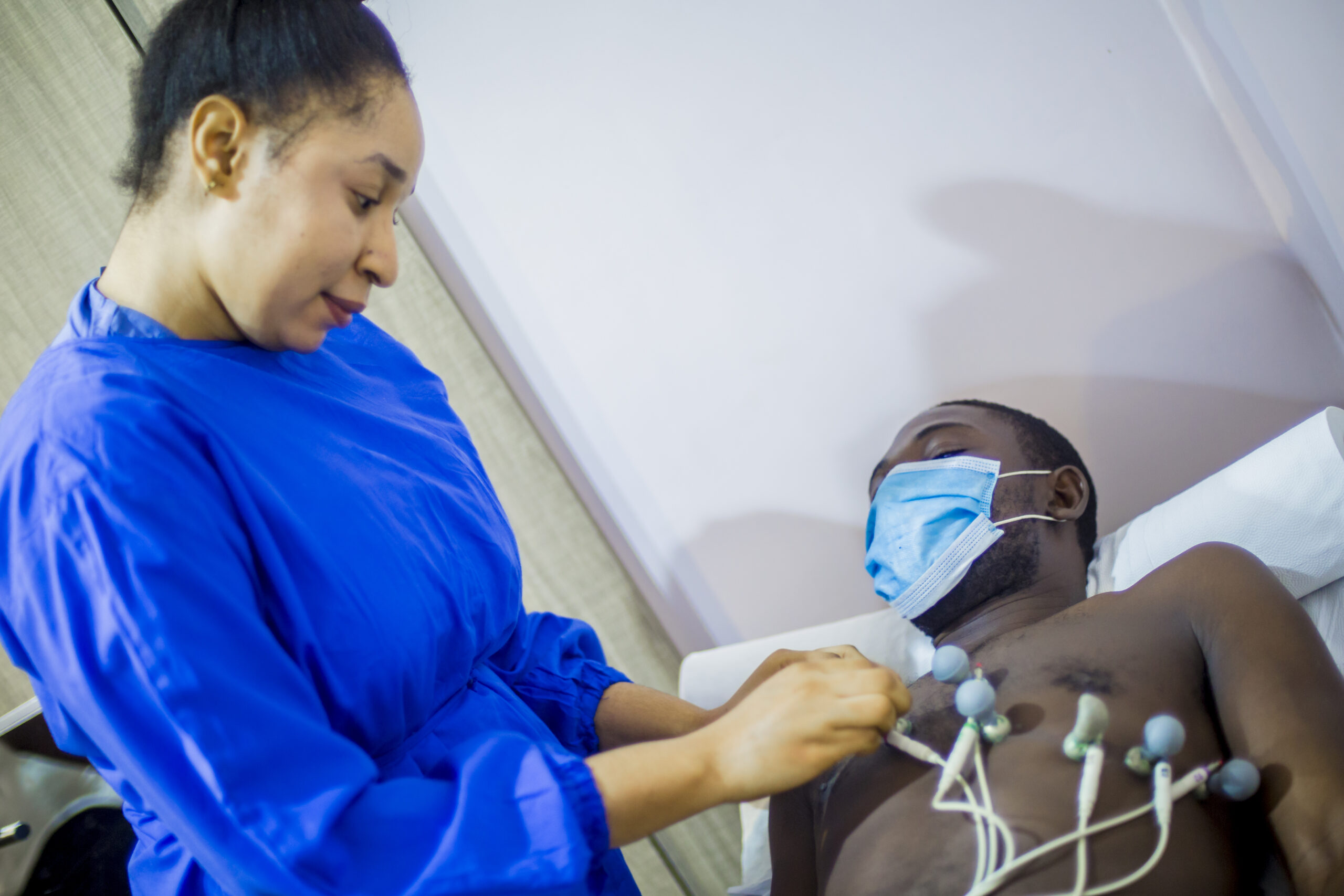what is percutaneous coronary intervention (PCI)
An echocardiogram is a non-invasive test that uses high-frequency sound waves to create images of the heart. This test is commonly used to evaluate the function and structure of the heart, including the heart’s chambers, valves, and blood vessels.
At Cardiocare Hospital, we offer comprehensive echocardiogram services to help diagnose and treat a range of heart conditions. Our team of experienced cardiologists and technologists use the latest technology to provide our patients with accurate and reliable results.
WHat happens during the procedure?
During an echocardiogram, the patient lies on a table while a technician applies gel to their chest and uses a transducer to send sound waves through the chest to the heart. The sound waves bounce off the heart and are picked up by the transducer, which converts them into images that are displayed on a monitor. The procedure is painless and typically takes less than an hour to complete.
Echocardiograms at Cardiocare
At Cardiocare Hospital, we offer several types of echocardiograms, including:
Transthoracic Echocardiogram: This is the most common type of echocardiogram and involves placing the transducer on the chest to produce images of the heart.
Stress Echocardiogram: This type of echocardiogram is performed while the patient is exercising or under stress to evaluate how the heart responds to physical activity.
Transesophageal Echocardiogram: This is a more invasive type of echocardiogram that involves passing a small, flexible tube with a transducer attached through the mouth and into the esophagus to produce detailed images of the heart.
Echocardiograms are important diagnostic tools that can help detect a range of heart conditions, including heart valve disease, heart failure, and congenital heart defects. At Cardiocare Hospital, we are committed to providing our patients with the highest quality of care and using the latest technology to help diagnose and treat heart conditions.



